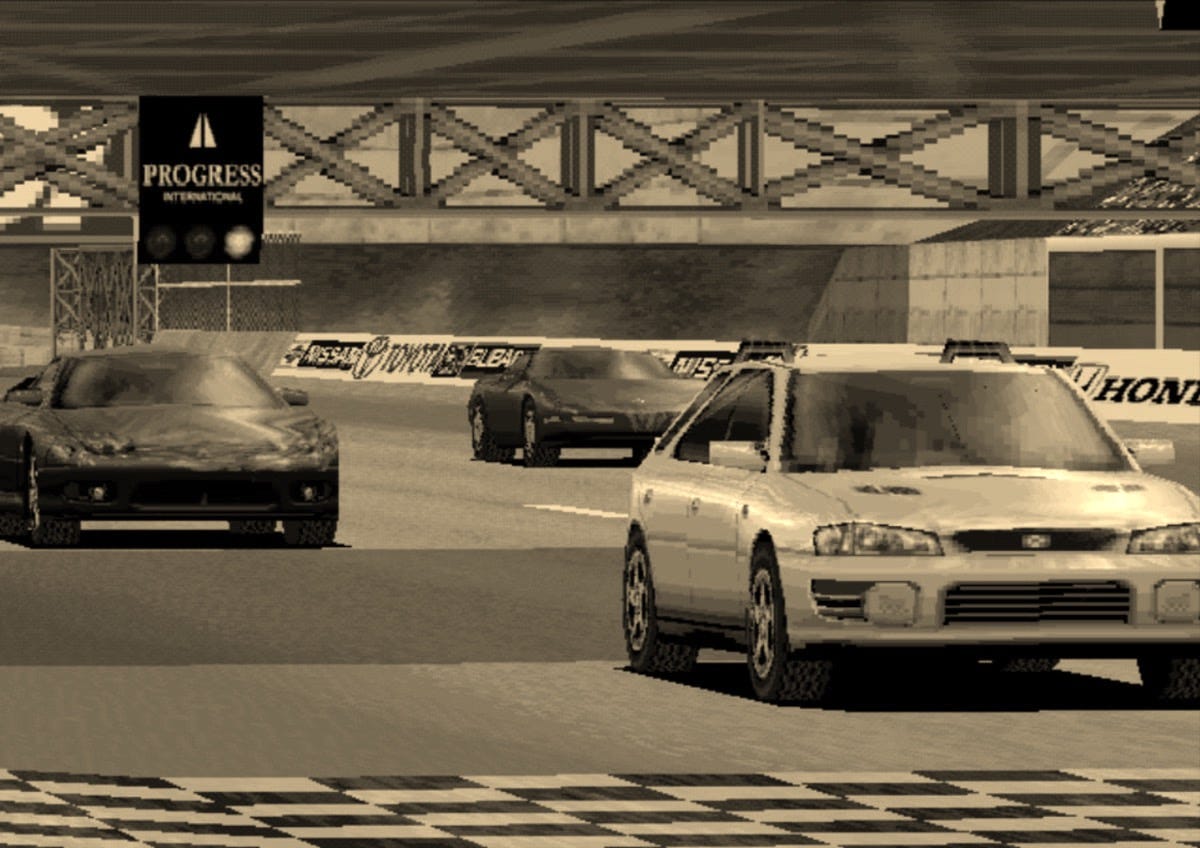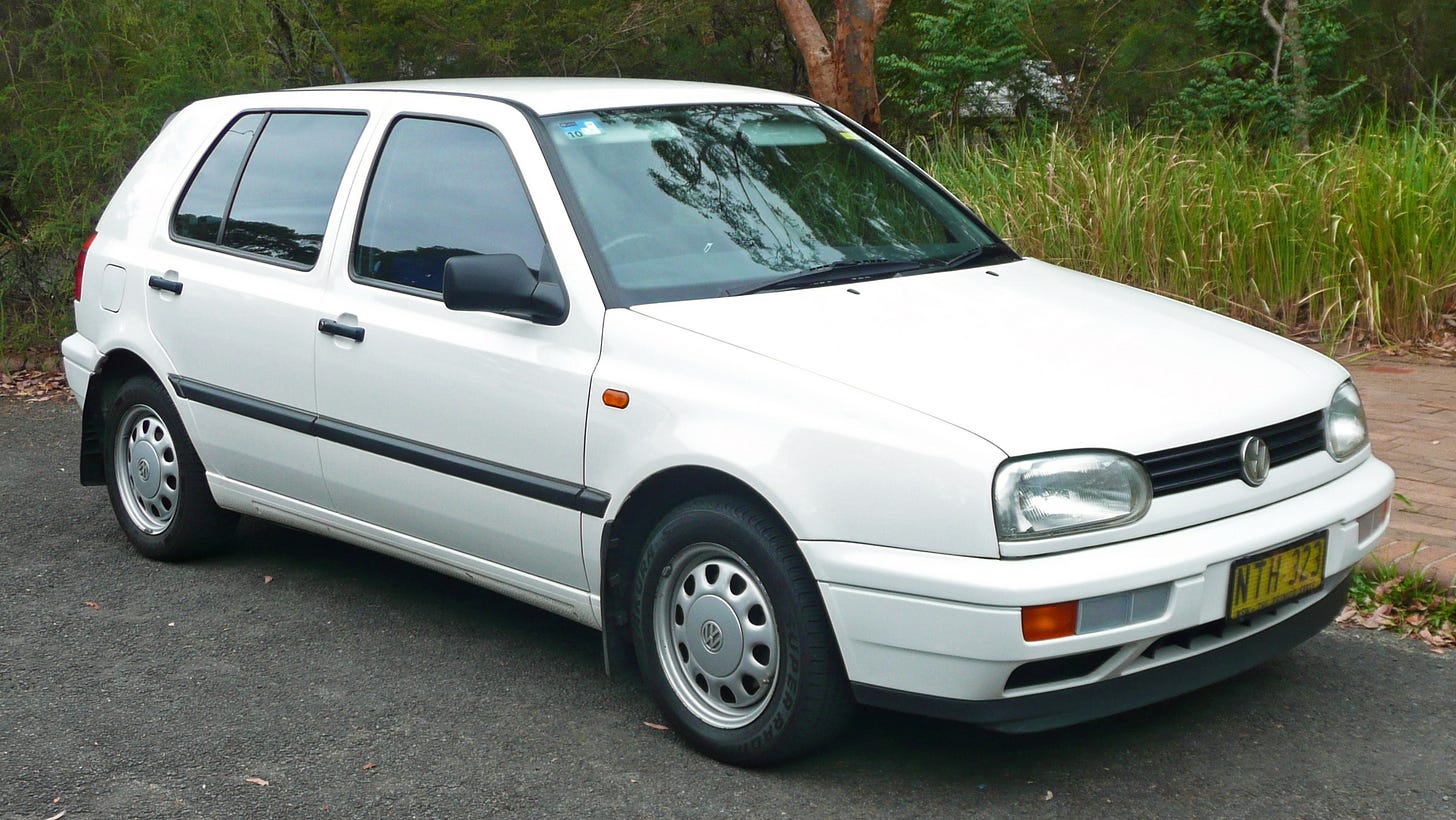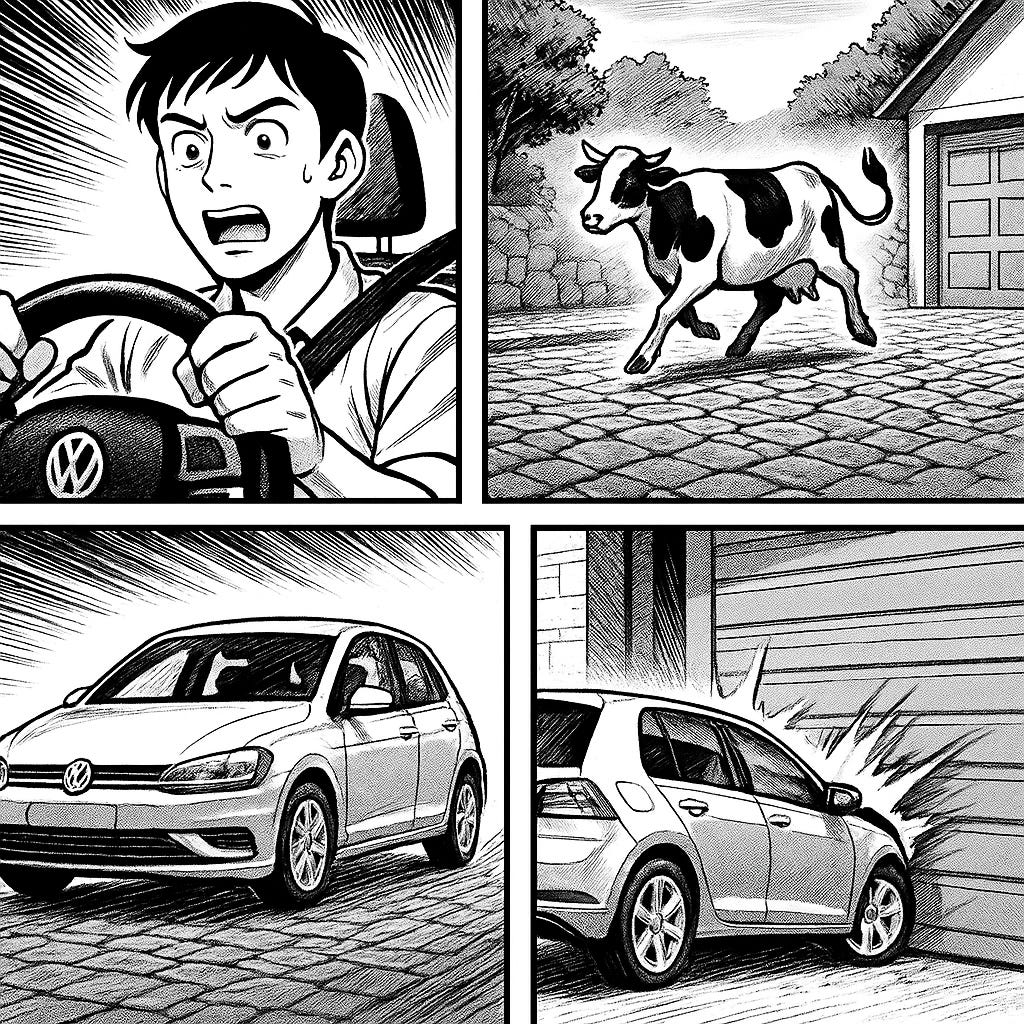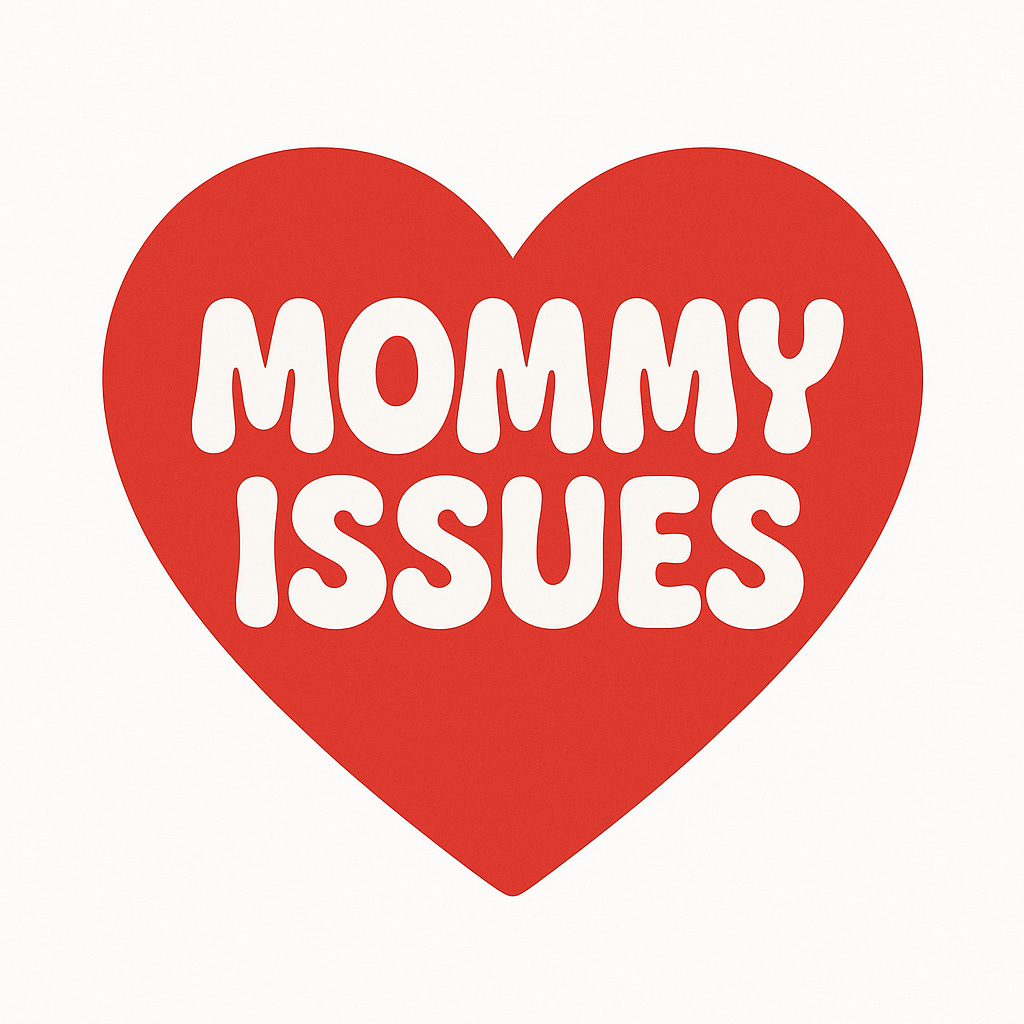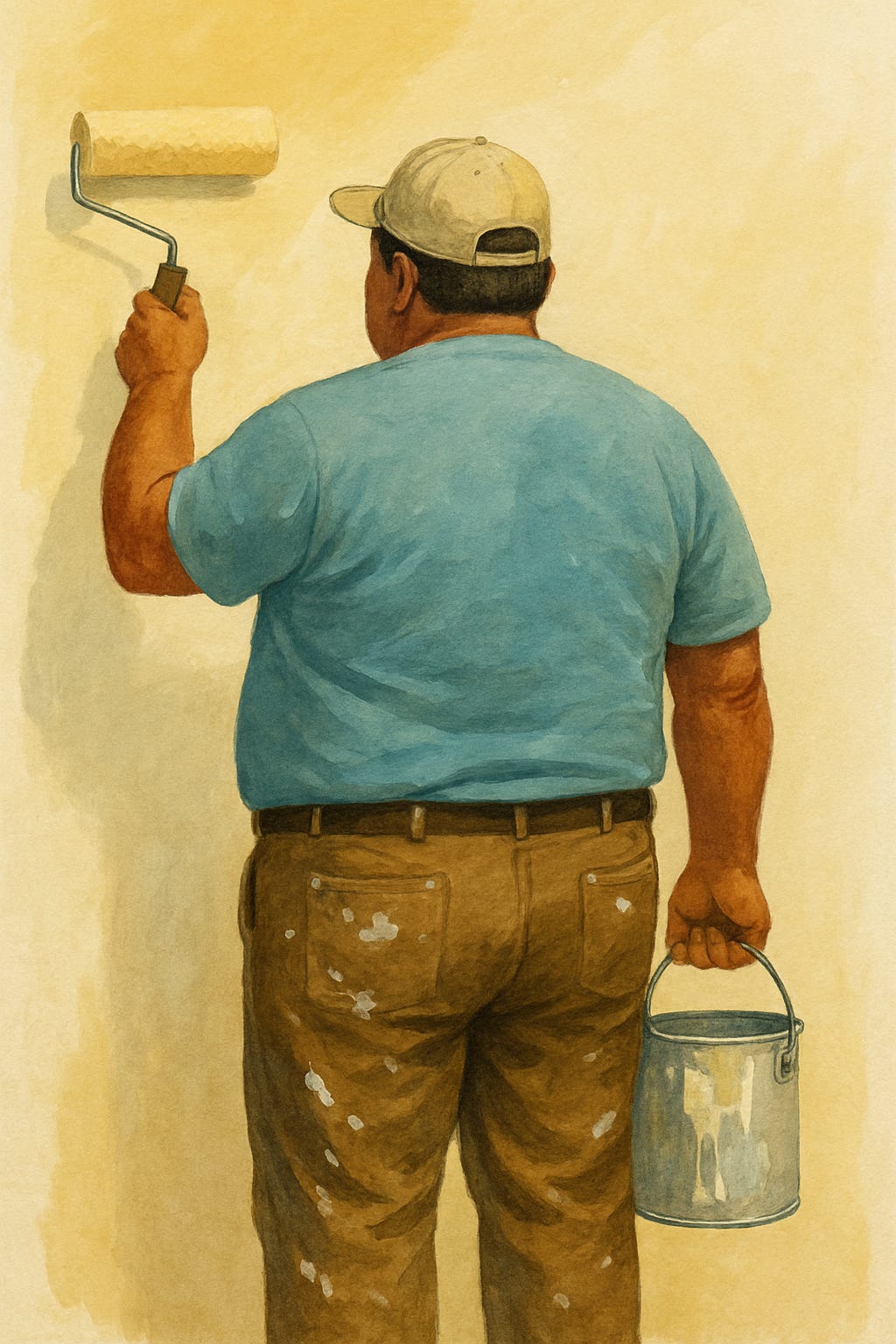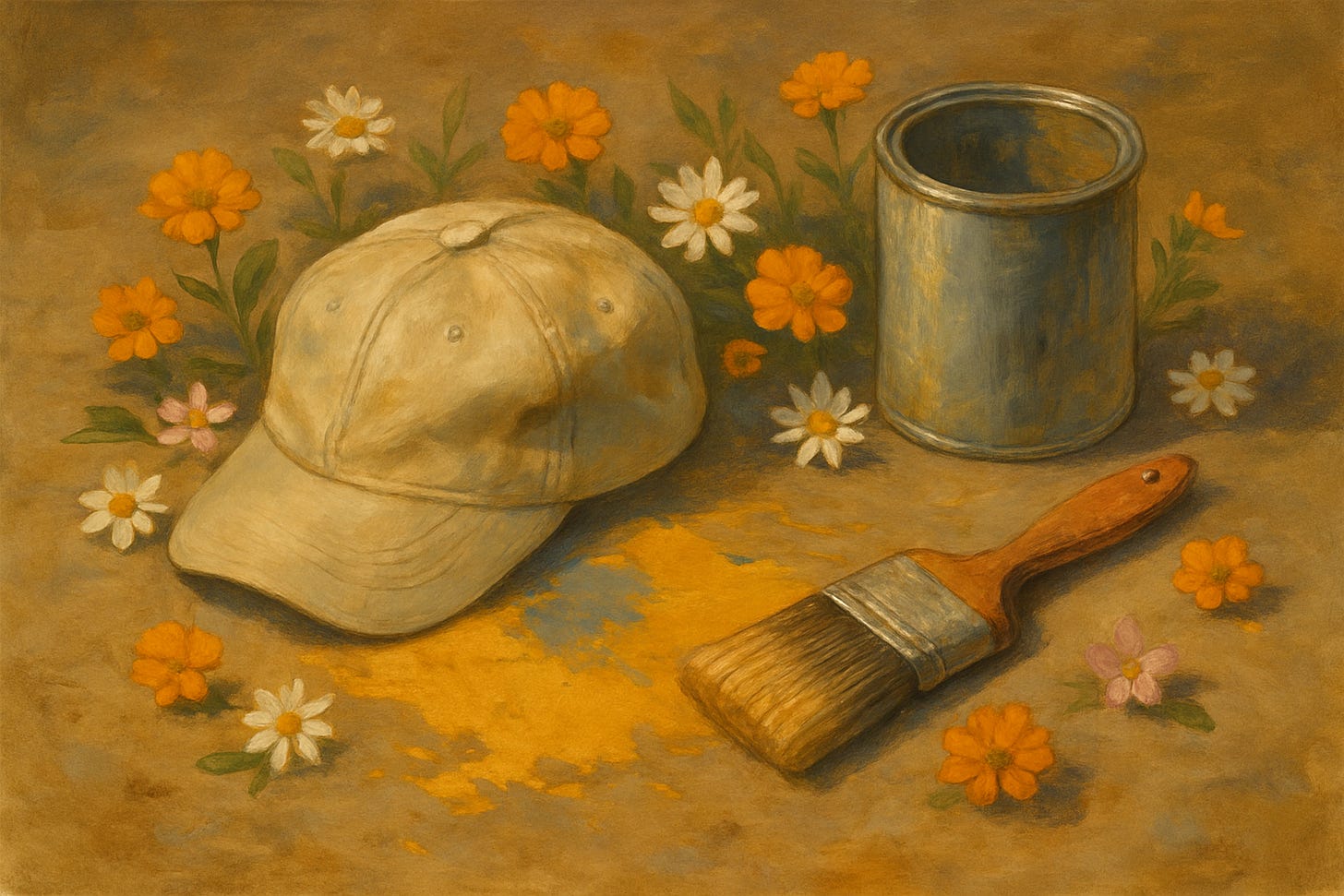Sliding into a Reckoning, in Real Time
A reflection on privilege, grief, and organizing help for someone who showed up for me
I learned to drive at 16 or 17. The process involved two ingredients: one, many hours of playing Gran Turismo; two, my willingness to sneak out with my grandma’s Mazda 323 to practice my newly learned skills around the neighborhood.
I’d go around the block visualizing corners the way you’re taught on GT. I had neither the engine, suspension, nor nerve to do so quickly, but I did learn how to coordinate the clutch with my desire to move forward—up a hill, and eventually back to the garage with no one being the wiser.
No one, I mean, except the people who worked at my house: a cook and a woman who basically raised me. It didn’t even cross my mind that they would tell on me, that they’d report my joyrides to my mother, who would’ve certainly disapproved. We were all afraid of her wrath, which is why we all knew it was best to keep her in the dark about what happened at home while she was away.
By 18, I’d had no problem getting my license and was eager to be a bit bolder when testing the limits of what a car could do. I drove fast, reveled in making my tires screech at every turn, and generally applied everything I’d learned on my PlayStation IRL. Now, I’m not saying I’m proud of this—especially not today, as a fully law-abiding citizen and very considerate driver—so please bear with me. Sharp curves ahead (but there will be a point).
We moved to a house in the countryside, one with a cobblestone road leading up to it, and I grew into the habit of sliding up to its entrance. I’d barrel down this road excessively fast in my Volkswagen Golf (loved that car), turn the wheel and pull on the handbrake, all while blasting music and thinking I was the real deal when it came to driving.
Cringe, I know.
And the first time I got into an accident, I was performing this very maneuver, which I’d practiced countless times. The difference, though, was that this time Marcelo was in the passenger seat. He’d been lacquering something around the house and needed me to take him to the hardware store. On the way back, I said to him, “Wanna see something cool?” (in Español, of course—do imagine that this story takes place in Latin America, at a time when it was easy to be wild) and proceeded to slide. I hadn’t taken into consideration the extra weight in the vehicle, which resulted in an excess of momentum I suddenly had to confront. Instead of sliding, I spun the car a little harder, hit the curb, and crashed the rear end of my car into the garage door.
It looked like a Pringle. And the car was pretty fucked up, to say the least.
I went into the house and called my mother’s driver, who came to my aid within minutes. We rounded up a few people around the neighborhood, took down the garage door, and set it on the flattest part of the garden. We grabbed a couple of wooden boards, laid them across the door, and my mother’s driver drove my mother’s SUV across the metal in the hopes of straightening it out.
I say we did this, but in all honesty, I was mostly frozen somewhere in this scene, receiving help from all of these good people—people who, like me, knew my mother’s wrath. That’s what we were all trying to avoid, together, as one.
Of course, at some point my mother was going to get home and see what had happened. She already knew something was up because it was her I called and asked to give her phone to the driver, which surely raised suspicions. We were going for a strategy of minimizing visible damage, and superficially, we’d succeeded. The garage door was up again, but it wasn’t straight enough to open. Likewise, the Golf sat pretty in the garage with very little apparent damage—but the chassis was wrecked.
We managed to make everything look good enough so that she wouldn’t outright explode and/or kill me.
Marcelo was still there when she got home. My plan was to admit to having experienced a small accident, but Marcelo had something different in mind. Before I could open my mouth, he said that a cow had jumped out into the road, which I had deftly avoided by taking a sharp turn into the garage door. According to him, I was a hero in this story.
I could only watch this interaction unfold, frozen, knowing that my mother didn’t believe a word of it. She was kind enough to notice my sheer terror and not ask any questions. And that was Marcelo, someone who had my back even in front of a final boss like my mom.
A few things should be clear by now:
My mommy issues
My privileged upbringing
My self-destructive habits
Through great peril, I’ve managed to survive all three. In a sense, surviving them is how I came to be where I am today: fairly broke, very vulnerable, and excited to set off on my journey as a mental health specialist.
I hadn’t planned to write about any of this—not the driving, not the garage door, and certainly not anything death-related. Then yesterday, life nudged me into this story. My brother messaged me early in the morning to say that Marcelo had passed, suddenly, and all of this was brought into view.
You’ll notice that in my story there were a number of unsung heroes: people who quietly made my life easier at every turn—maids, drivers, nannies, and Marcelo. They were all united by a very real fear of my mother as well as a commitment to honest work in a country shaped by vast social differences.
Marcelo had been in the hospital recovering from a fall and was expected to be released that same morning. But sometime in the night, he had a heart attack and didn’t make it out.
Marcelo was someone both near and far. Throughout my life, I probably saw him three or four times a year, whenever the house needed work—he was a fantastic house painter and lacquerer. More recently, he was someone I could trust to look after my dog or cat when I traveled. He lived simply, loved music, and—prior to crashing into the garage door with me—probably thought the Led Zeppelin I was blasting was actually cool, since it was more his generation’s music than mine.
He was a fairly lonely individual, whose hardship was particularly difficult for me to witness. Gig work is not easy anywhere in the world, let alone in Ecuador, in a city where you have no family and which you moved to in order to have slightly better odds at making ends meet. He had no children or romantic partner that I knew of. Besides his dog, whom he adored, he was on his own.
In recent years, whenever we’d talk, he’d always ask about my grandparents, who were growing frail. He’d also mention his own health issues, which introduced me to diseases I honestly prefer not to look up on Wikipedia (ever heard of Fournier?). He’d truly escaped death many times before and used to say he wasn’t sure why God kept him around for so long.
I’m not sure either, to be honest. Witnessing Marcelo always meant accepting that life could be lonely and extremely hard.
Though there was a quiet dignity about him and a sweetness that could only come from a big heart, I couldn’t escape the fact that Marcelo forced me to face difficult questions about privilege, friendship, justice and valor. About continuing to go on when life gets unbearably hard.
So here I am, witnessing so much of what he meant to me, witnessing the contrasts in our lives, and the humanity that made him so dear to me.
Yesterday, when the notification appeared on my phone, I had to excuse myself from Zoom. I spent the morning deciding how to respond to the situation, knowing that the family Marcelo left behind would be facing a very difficult moment financially. I decided to do something I’d never done before: fundraise (on my brother’s GoFundMe account, with his blessing and support).
Here’s the result:
👉 https://www.gofundme.com/f/marcelo-logacho
As of writing, we’re just north of $1,000 in donations. And I am so proud of this.
If you too feel moved to donate, the page will be open for a few more days at least.
And as I write this, I tear up. Between student debt and solopreneur startup costs, I’ll probably be underwater for the next year—and at 10 a.m. yesterday, I didn’t think I’d be able to help at all. By early afternoon, I realized I could do my part by organizing and holding the space for others to support.
New skill unlocked, it seems: an ability to help someone in financial need (despite my own).
In my inner dialogue, I realized what a difference support systems can make. Marcelo didn’t have many—he had us, the public health system, and a neighbor or two to look after his dog. He wasn’t eligible for social security support because he was an occasional laborer.
I, though veritably in the red, have plenty of friends and family. Many of you showed up for Marcelo today just because I asked—and what has been raised already will make an immense difference for a family in the Ecuadorian highlands, good people you or I may never meet.
I am truly lucky to have you (here come those tears again).
And here are my final thoughts for the evening:
Paying it forward is a way of life.
But we need to do better—always—recognizing that class and privilege mean not just the ability to help, but the ability to survive a truly difficult world.
It’s probably why I’m still alive, hoping to help others with their grief and mommy issues as I continue dealing with my own.
Thank you, from the bottom of my heart—to every one of you, my system of support.



